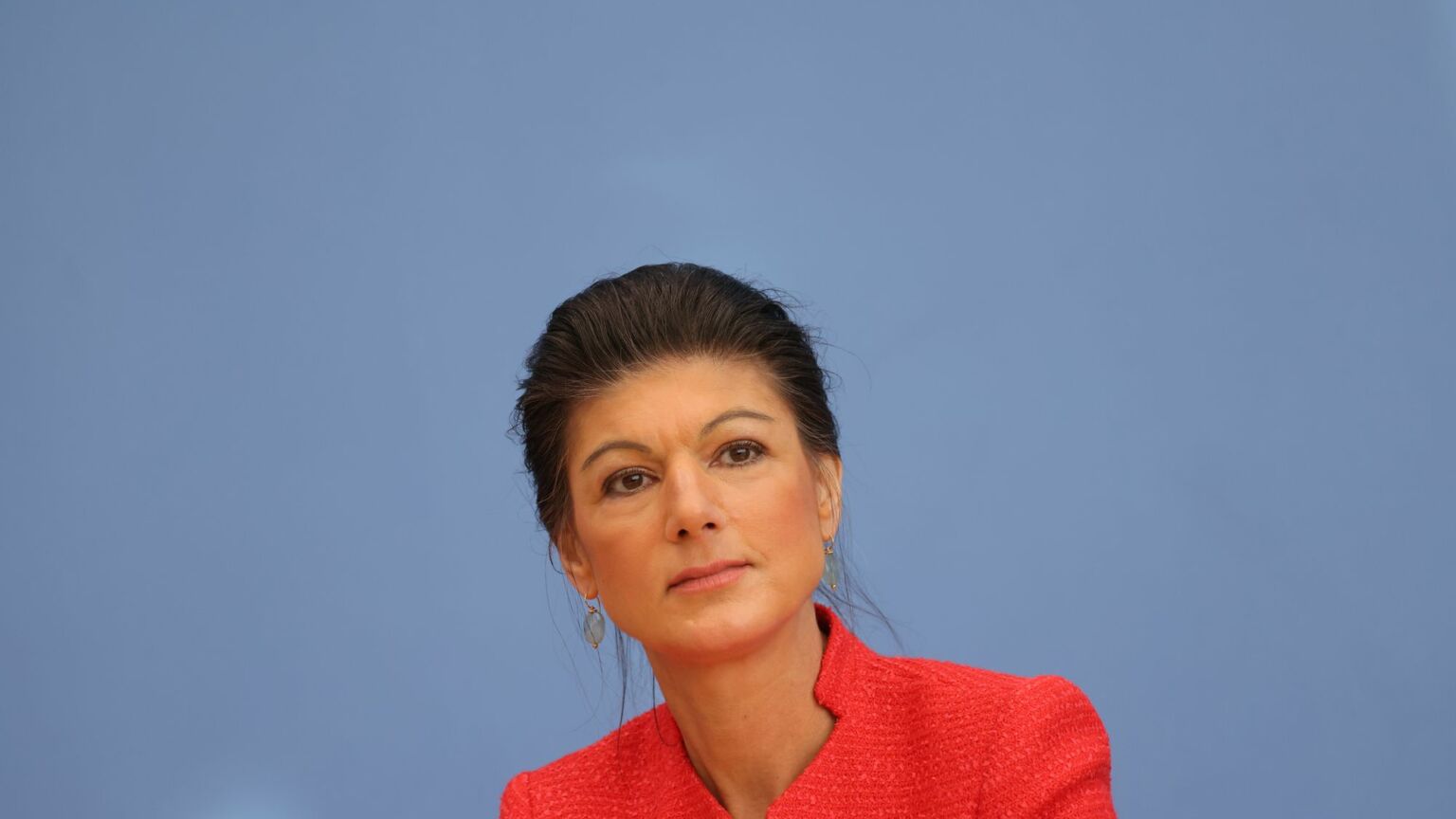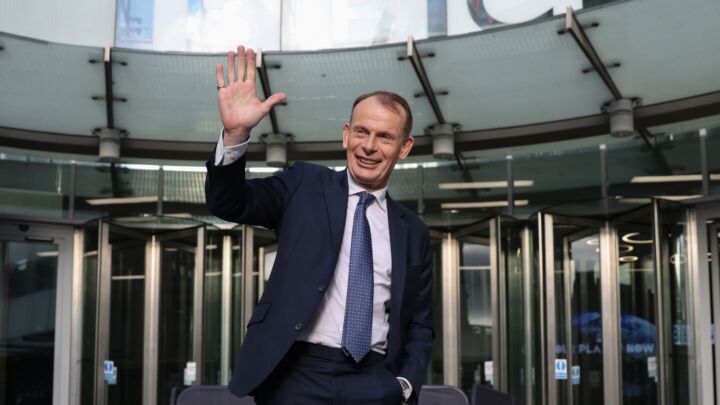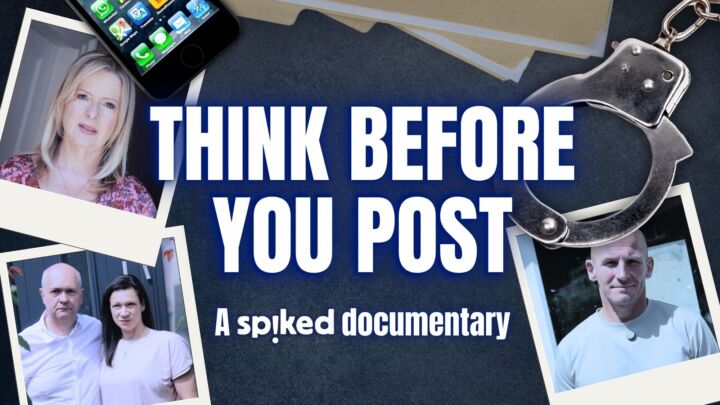Meet Germany’s anti-woke, anti-lockdown left-winger
Sahra Wagenknech’s new left-populist party offers Germans another outlet for their anger.

Want unlimited, ad-free access? Become a spiked supporter.
There couldn’t have been a better time for Sahra Wagenknecht, Germany’s most famous leftist politician, to announce her new party. Last week, Wagenknecht launched the Bündnis Sahra Wagenknecht – Vernunft und Gerechtigkeit (BSW), which translates to ‘Alliance Sahra Wagenknecht – reason and justice’. At the same time, farmers’ protests were breaking out across Germany.
During the press conference for the BSW’s launch, Wagenknecht backed the rebellious farmers. She said that people were understandably fed up with a government that does nothing but take ‘money out of pockets’. She accused chancellor Olaf Scholz of having nothing to say and the opposition of blindly toeing the government line on most issues.
The BSW has certainly got off to a promising start. Its launch has already had an impact on German party politics, speeding up the decline of Germany’s Left Party (Die Linke), of which Wagenknecht was the most prominent member. After years of struggling against the Left Party’s decline into wokeism, Wagenknecht finally resigned as a Left MP last October.
Wagenknecht – a former chair of the Left Party and often called Germany’s ‘new Rosa Luxemburg’ – certainly has strong populist credentials. During the Covid-19 crisis, she became one of the staunchest critics of the government’s authoritarian lockdown policies. And she is one of the few politicians who has consistently called out the elites’ disdain for ordinary people, criticising their ‘lifestyle leftism’ and identity politics in her 2021 book, Die Selbstgerechten (The Self-Righteous). Wagenknecht has also been a long-standing critic of Brussels’ technocratic politics, though she has never explicitly campaigned to leave the EU. In 2016, she was physically attacked, when left-wing activists threw a cake into her face at a Left Party conference because she had criticised then chancellor Angela Merkel’s lax immigration policy.
The BSW’s first real test will be the upcoming EU elections in June. Later in September, there will be three important elections in the eastern states of Saxony, Brandenburg and Thuringia – areas where the right-wing populist Alternative für Deutschland (AfD) is leading in the polls. Like the AfD, Wagenknecht is tapping into the public’s deep discontent with mainstream politics, and in particular the current government coalition. When she said last year that Germany has the ‘stupidest government in Europe’, she hit a nerve with many people. Polls have indicated that her party could win anything between four per cent and 17 per cent of the vote.
One of the main questions many commentators have been asking is whether the BSW will be a useful tool to weaken the AfD. The AfD has been surging in polls everywhere, putting it in second place in Germany. Now, many hope that Wagenknecht will cut the AfD’s vote share by splitting the populist opposition.
Wagenknecht and her team have been careful to distance themselves from the AfD. They have announced that the BSW will not accept anyone wishing to join them directly from the AfD or any other ‘dubious parties’. But while the desire to differentiate themselves from the AfD is understandable, this policy might well be a miscalculation. After all, Wagenknecht and her party can only be successful if they manage to attract support from other populist parties – especially if they want to become, as they say, a people’s party.
Whether the BSW succeeds will depend on its political message and programme. The BSW’s manifesto, a first draft of which was published earlier this month, is certainly wide-ranging. The BSW wants more investment in public services and infrastructure; more wealth redistribution and increased welfare spending; more public investment in industry and business; no more US-led military alliances; peace talks with Russia; reduced immigration; and an end to cancel culture.
It’s easy to see why much of this programme would resonate with German voters. But none of this guarantees the BSW’s electoral success. One problem is that the cult of personality around Wagenknecht – highlighted not least by naming the BSW after herself – has made the party come across as a one-woman show.
The BSW’s political programme, though popular, is also a little incoherent. It focuses heavily on redistribution, but doesn’t mention economic growth. It espouses more welfare spending, while glossing over the fact that Germany’s welfare state has reached unsustainable heights. It criticises Germany’s failed energy policy, but doesn’t mention nuclear power. Instead, Wagenknecht wants to reopen the gas pipelines from Russia.
Most egregiously, the BSW’s foreign-policy vision is a mixture of wishful thinking and nostalgia for the Cold War era. The BSW wants to rekindle the relationship between East and West, placing itself ‘in the tradition of Willy Brandt and Mikhail Gorbachev’. But today’s geopolitical tensions are quite different to those of the Cold War. And Wagenknecht’s dreams of peace with Russia completely ignore the importance of Ukraine’s fight for national sovereignty and freedom.
But while the BSW is struggling to find its ideological footing, its emergence is still worth celebrating. Disgruntled voters have gained another outlet for their anger. Finally, there is a left-wing party that wants to fight against cancel culture, identity politics and the rule of the elites – a surprisingly rare offer from the European left today.
Sabine Beppler-Spahl is spiked’s Germany correspondent.
Picture by: Getty.
You’ve read 3 free articles this month.
Support spiked and get unlimited access.
Support spiked – £1 a month for 3 months
spiked is funded by readers like you. Only 0.1% of regular readers currently support us. If just 1% did, we could grow our team and step up the fight for free speech and democracy.
Become a spiked supporter and enjoy unlimited, ad-free access, bonus content and exclusive events – while helping to keep independent journalism alive.
———————————————————————————————————————————–
Exclusive January offer: join today for £1 a month for 3 months. Then £5 a month, cancel anytime.
———————————————————————————————————————————–
Monthly support makes the biggest difference. Thank you.









Comments
Want to join the conversation?
Only spiked supporters and patrons, who donate regularly to us, can comment on our articles.